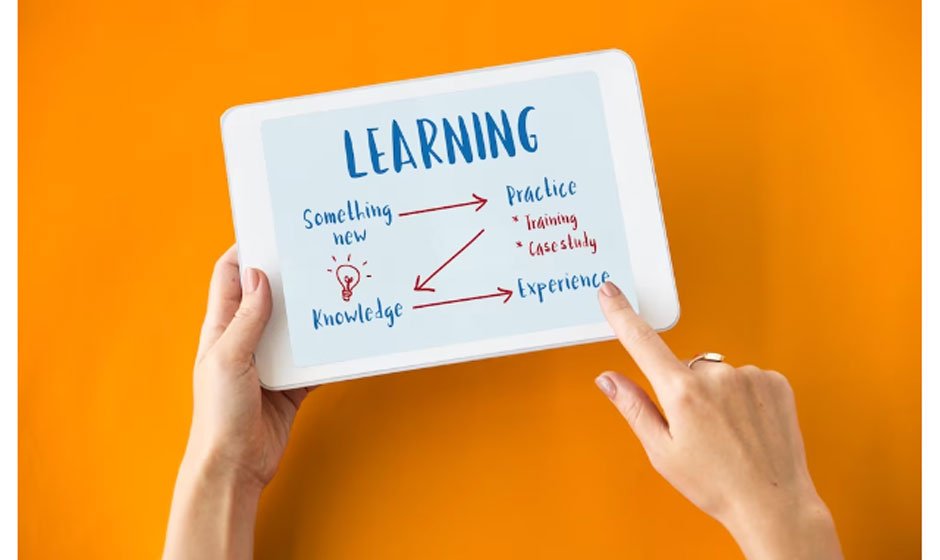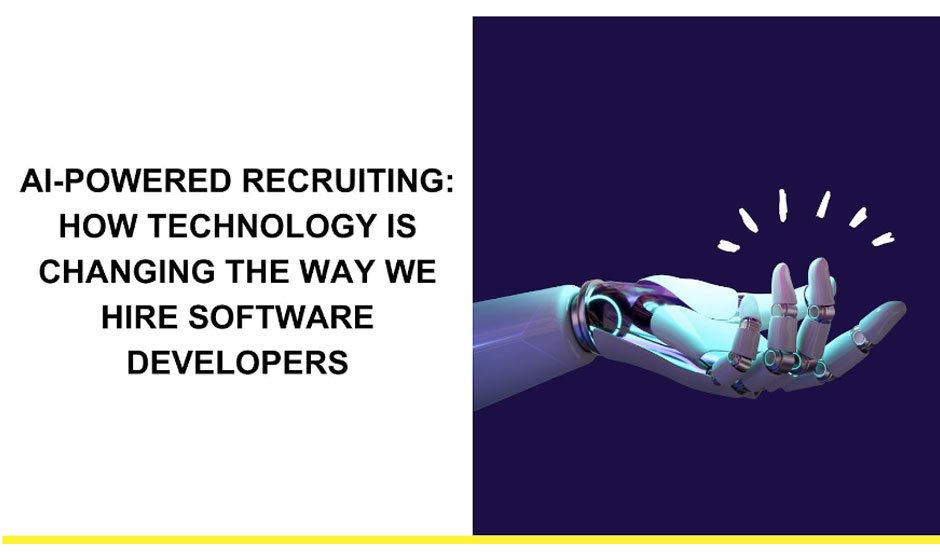In the evolving landscape of tech recruitment, the advent of AI-powered tools is transforming the traditional methodologies businesses prefer to hire software developers. This shift is not merely about automation but about enhancing the recruitment process to be more efficient, equitable, and aligned with the dynamic needs of the tech industry.
This comprehensive guide explores how AI is redefining the way companies scout, evaluate, and onboard software development talent.
Navigating the Future of Tech Recruitment with AI
As we venture deeper into the digital era, the recruitment realm, especially within the tech sector, is undergoing a profound transformation. The task of hiring software developers, fraught with challenges of volume, speed, and quality, is being revolutionized by AI-powered recruiting solutions.
These advancements promise not only to streamline the hiring process but also to unearth talent that traditional methods might overlook. Let’s delve into how technology is changing the hiring landscape for software developers, making it more efficient, predictive, and adaptive to the needs of both employers and candidates.
1. Automated Resume Screening
The first contact point in recruitment, resume screening, can be a time-intensive process, often filled with unconscious biases. AI algorithms excel in parsing vast numbers of resumes quickly, identifying key skills, experiences, and educational backgrounds relevant to the role of a software developer.
This automation accelerates the screening process, enabling recruiters to focus on candidates who match the job specifications closely. Moreover, AI-driven tools are designed to minimize biases, focusing on the merits of the candidates’ qualifications rather than subjective criteria.
2. Enhanced Candidate Matching
AI technology goes beyond simple keyword matching to understand the context and nuances of job descriptions and candidate profiles. By analyzing past hiring decisions, successful employee trajectories, and evolving role requirements, AI algorithms can predict candidate suitability with remarkable accuracy.
This sophisticated matching process ensures that companies looking to hire software developers can find candidates whose skills, experience, and potential align with the organization’s long-term objectives, thereby improving the quality of hires and reducing turnover.
3. Streamlined Interview Scheduling

Coordinating interviews can be a logistical challenge, especially when dealing with multiple candidates and interviewers’ schedules. AI-powered tools automate this process, finding optimal times for all parties, sending reminders, and even rescheduling if necessary. This efficiency reduces the administrative burden on recruitment teams and improves the candidate experience by making the process smooth and hassle-free.
4. Predictive Analytics for Talent Acquisition
AI-driven analytics provide insights that can transform strategic hiring decisions. By analyzing trends in the labor market, skill set availability, and even predicting future skills requirements, AI helps companies proactively plan their recruitment efforts. This forward-looking approach ensures that businesses remain competitive by acquiring software development talent with the skills needed for tomorrow’s challenges, not just today’s.
5. Bias Reduction in Hiring
One of the most significant impacts of AI in recruiting is its potential to reduce unconscious biases. By emphasizing skills, experiences, and competencies over factors that may lead to biased evaluations, AI fosters a more diverse and inclusive workforce. Diverse hiring for software developers not only enhances innovation and creativity but also reflects a commitment to fairness and equality within the tech community.
6. Virtual Reality (VR) and Augmented Reality (AR) in Interviews
Innovative companies are beginning to use VR and AR to create immersive interview experiences, allowing candidates to demonstrate their skills in simulated environments. This approach is particularly effective in technical fields like software development, where practical skills are as crucial as theoretical knowledge. Virtual assessments allow candidates to showcase their problem-solving and coding abilities in real-time, offering recruiters a deeper insight into their capabilities.
7. Continuous Learning and Improvement
AI systems are inherently designed to learn and improve from every interaction and decision. In the context of hiring software developers, this means that the algorithms become more refined and accurate over time, learning from the outcomes of previous hires to make better predictions about future candidates. This continuous improvement cycle ensures that AI-powered recruiting tools become more valuable to organizations with each hire, constantly evolving to meet the changing needs of the tech industry.

8. Enhancing Employee Retention Through Data Insights
The power of AI in the recruitment process extends into the crucial area of employee retention. By analyzing data points across the employee lifecycle, AI tools can identify patterns and predictors of job satisfaction and longevity. For companies looking to hire software developers, this means being able to not just attract but retain top talent by understanding what keeps developers engaged and motivated. AI can help identify factors such as project variety, career advancement opportunities, team dynamics, and work-life balance preferences that contribute to a developer’s decision to stay with a company long-term.
AI-driven insights allow HR departments to create more personalized career development plans and improve the overall working environment, leading to higher satisfaction levels among software developers. This tailored approach not only boosts retention but also enhances the company’s reputation in the tech community, making it a more attractive place to work.
9. AI in Onboarding and Continuous Development
The integration of AI doesn’t stop at hiring; it extends into onboarding and the continuous development of software developers. AI-powered platforms can streamline the onboarding process, making it more efficient and engaging for new hires. Through personalized learning paths, AI can assess a developer’s existing skills and identify areas for growth, recommending tailored resources and projects to accelerate their integration into the team.
Moreover, AI can facilitate the ongoing development of software developers by constantly analyzing work patterns, project outcomes, and skill progressions to suggest personalized learning opportunities. This could include recommendations for specific coding languages, development methodologies, or soft skills enhancement, depending on the individual’s career trajectory and the company’s project pipeline. By leveraging AI for onboarding and continuous development, companies can ensure that their software developers remain at the cutting edge of technological advancements, thereby maintaining a highly skilled and adaptable workforce.
Rounding Up
AI-powered recruiting is not just reshaping how we hire software developers; it’s setting a new standard for efficiency, equity, and strategic foresight in tech recruitment. By leveraging automation for routine tasks, enhancing candidate matching with predictive analytics, and creating more engaging and unbiased hiring processes, AI is enabling companies to attract and retain top-tier software development talent.
As we look to the future, embracing AI in recruitment practices represents not only an adaptation to technological advancements but also a commitment to building dynamic, diverse, and skilled teams equipped to navigate the complexities of the digital world.





